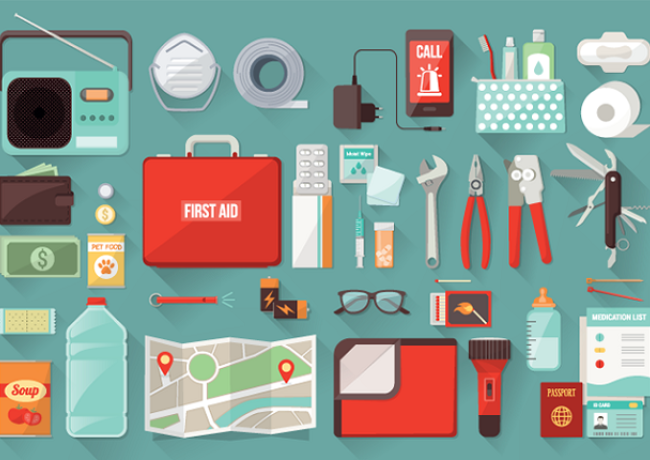Are you "Ready for Anything?"


“Kerry Jardine, Resilient Communities Policy Manager, shares some advice on being prepared for emergencies and what you can do at home to be more resilient.”
I’ve been working in the area of resilience for around 12 years, and whilst Scotland is a relatively safe country, I’ve participated in the government’s response to events including severe winter weather, flooding, pandemic flu, terrorist attacks, fuel shortages and animal health diseases. I was also part of the team which created the Cyber Resilience Strategy for Scotland and got a lot of insight into the opportunities and threats that come from the world wide web.
At the time of writing this blog we are still surrounded with a lot of uncertainty about leaving the EU and what the impact will be to our lives, security, businesses and long-term economic prosperity.
Challenges like these can affect us all in our daily lives, and in many cases we don’t get a lot of notice to prepare. But when individuals, businesses and communities organise themselves to prepare for emergencies or big disruptive events, it can make a big difference.
So what does resilience mean to you and your family? What would happen if you had to leave your house in a hurry? Could you all get in touch with each other, or have you agree a place where you could all meet up? What about information list your home insurance policy details or the school or childminders numbers?
There are a few things that you can do at home to be more prepared for challenging situations, such as making a household emergency plan . A household plan is a simple checklist of information, phone numbers and things you’d need to do in an emergency. It would only take a little time to pull it together, but could save you a lot of stress if something were to happen. Check out Ready Scotland's video below for some more information:
Packing a small emergency kit and keeping it in a safe place at home will also stand you in good stead in a wide range of emergency situations.
Always prioritise people over possessions. But, if you have to leave your home, and there’s time to do so safely, then you could consider moving (and securing) important possessions to the upper levels of your home or to higher ground if you are at risk of flooding e.g. your essential documentation, photos, jewelry medicines, or your vehicles.
In 2019 I’ll be writing a couple more blog articles about business and community resilience. But for now if you want to learn more about resilience, please visit www.readyscotland.org